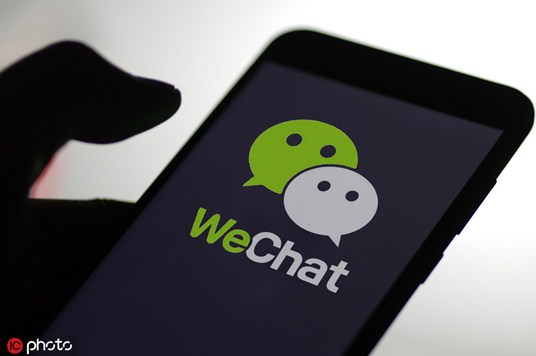WeChat quick response codes help generate jobs and boost businesses

WeChat currently hosts over 1 million mini programs, with 1.5 million developers and 82 million third-party platforms devoted to enriching various services via the app, which boasts 1.15 billion users globally/ [Photo/IC]
What's in a quick response (QR) code? An economy worth more than 8 trillion yuan ($1.15 trillion), says a new report released on Thursday.
New industries and business models fostered by WeChat, China's all-in-one application connecting people and businesses with a QR code, created a market value of more than 8.58 trillion yuan last year, WeChat operator Tencent Holdings Ltd said in a joint study with Tsinghua University's Institute for Global Industry.
Featuring WeChat's mini program, public accounts and payment functions, the so-called WeChat ecosystem generated some 26 million jobs related to transactions via QR codes last year, the company said during its annual WeChat-themed Open Class in Guangzhou, Guangdong province.
For instance, its mini program, or a built-in app aggregator, saw transactions reach 800 billion yuan in 2019. The adoption of a WeChat Pay Score, which gauges users' credit worthiness using data analytics, helped save deposits of various service types worth over 100 billion yuan.
WeChat currently hosts over 1 million mini programs, with 1.5 million developers and 82 million third-party platforms devoted to enriching various services via the app, which boasts 1.15 billion users globally. Among them, 800 million have chosen to tie their bank cards to the app so that they can pay with their phones across tens of millions of stores in more than 300 cities.
Due to its ubiquity, WeChat has effectively prolonged the operating hours of businesses. Data showed that evening expenditure was most vibrant between 8 pm to 10 pm, whereas a quarter of WeChat Pay users opened their virtual wallets from 10 pm to midnight.
Meanwhile, technology advancements have also empowered mom-and-pop stores and individual peddlers. The number of transactions settled via WeChat Pay tripled between 2017 and 2019. More than 50 million small merchants, or 79.4 percent nationwide, use WeChat Pay as a payment method.
In the retail realm, people used WeChat Pay 5.8 times per month on average for purchases last year. Scanning the QR codes for food purchases jumped six times, while public transportation benefited from increased adoption of QR code swiping for metro rides and consequently enhanced entry efficiency by three times.
WeChat has also shouldered bigger social undertakings. Mini programs related to civic services were used 900 million times in 2018, while over 60 percent of hospitals used WeChat Service Account, a customer relations management-like function that cuts the average queue time by 43.6 minutes.
As a bridge connecting the real world and the virtual world, QR codes lower costs for business operators, add more value in a smoother fashion, and are set to accelerate digitalization of the entire society, said Wu Jing, a researcher with the Institute of Science and Development at the Chinese Academy of Sciences.
WeChat said it plans to include more functionalities this year to better monetize mini programs. These include livestreaming, targeted QR codes pegged to items, and object-recognition capabilities to help merchants better convert clicks into cash via WeChat, said Du Jiahui, vice-general manager of WeChat Open Platform.

